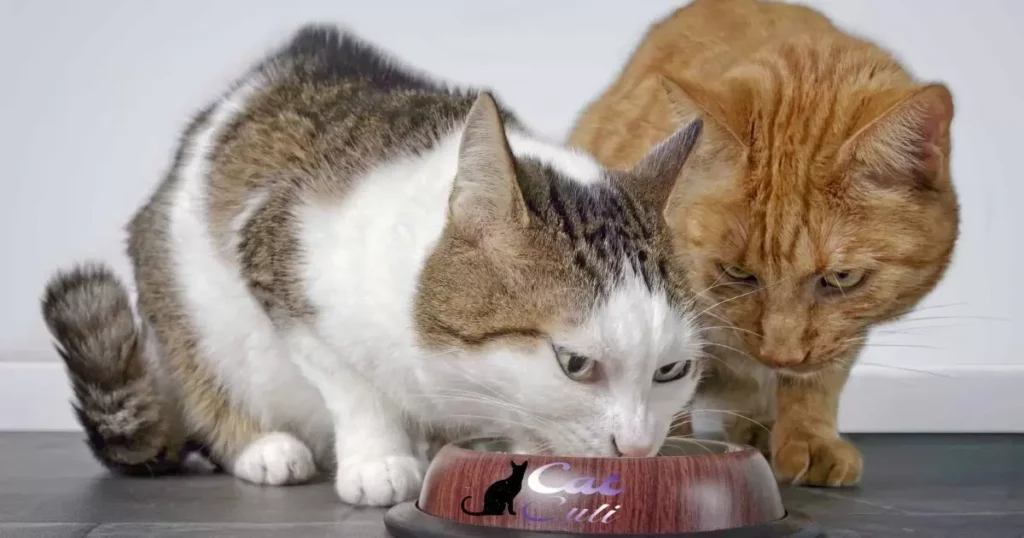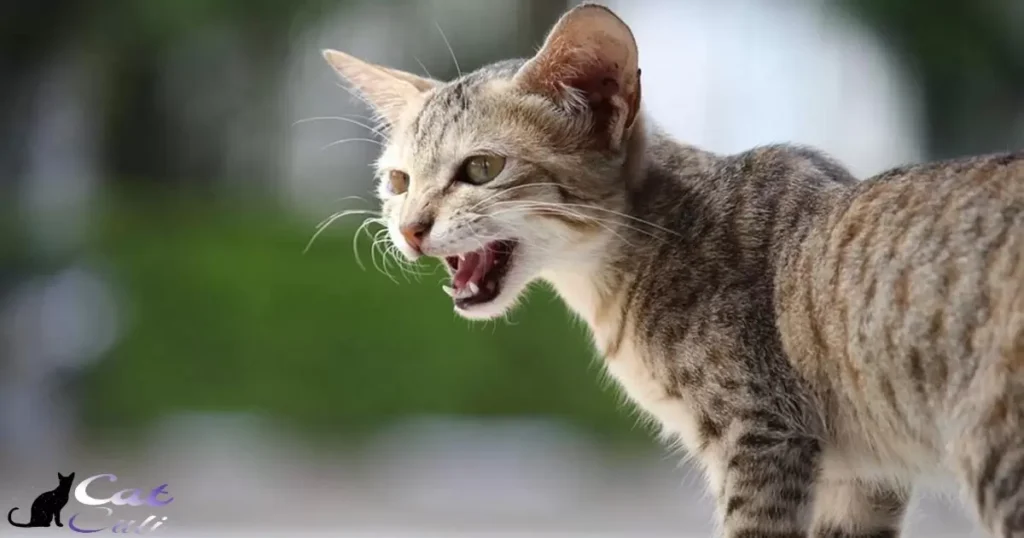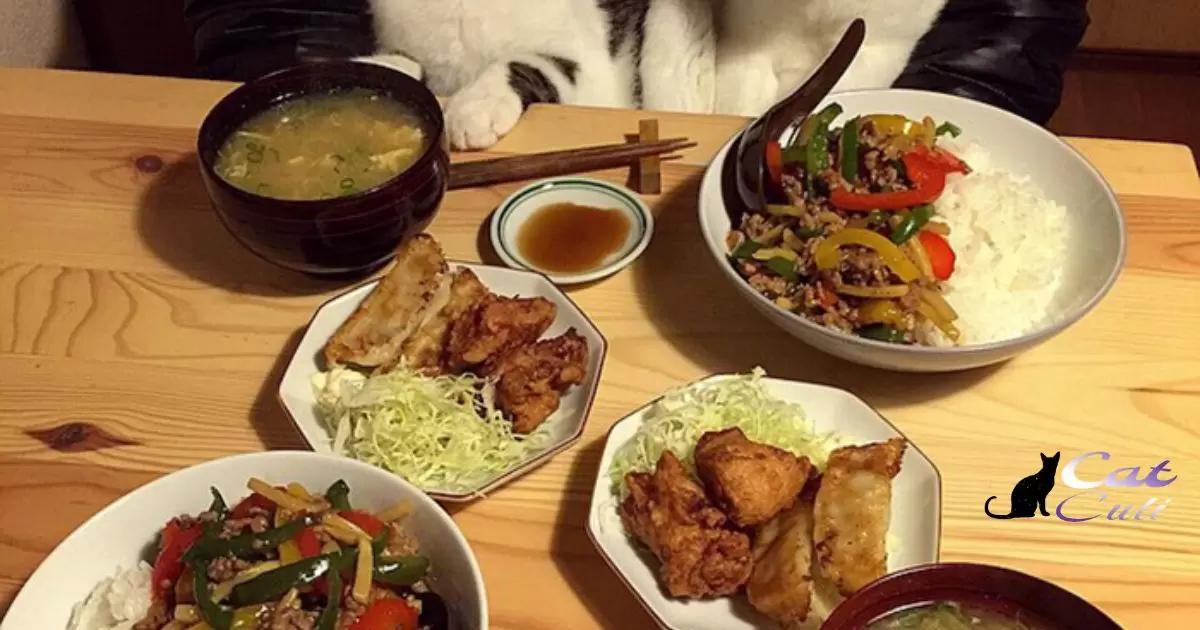Cats can become bored with eating the same food repeatedly, impacting their appetite. This boredom might lead to fussiness or reduced intake. Introducing variety in their diet keeps them engaged and can prevent potential health issues. Changing their meals occasionally helps maintain their interest and overall well-being.
Ever wondered, Do cats get tired of eating the same food? Feline friends might be pickier than we think. Just like us, they crave variety. Discover why sticking to the same old meal might leave your whiskered companion less than thrilled, and how a little change can go a long way in keeping them purrfectly content.
Cats might tire of eating the same food over time. Variety can keep them interested and ensure they get necessary nutrients. Gradually introducing new options is a good way to keep their meals exciting.Cats can grow bored with eating the same food every day. Introducing variety in their diet keeps them interested and healthy.
Why Do Cats Never Finish Their Food?
Cats often leave food unfinished due to their natural hunting instincts. They prefer smaller, frequent meals, mimicking how they eat in the wild. Leaving some food behind might also indicate their pickiness or the food not meeting their taste preferences.
Environmental factors like distractions or discomfort can cause them to abandon their meal before finishing it.Understanding a cat’s eating behaviour helps address why they might not finish their food.
Their inclination for frequent but smaller meals and selective taste preferences play a significant role. External factors, such as distractions or discomfort, can also influence their eating habits, leading to unfinished meals at times.
Do Cats Get Bored Of The Same Food?
Cats can become bored when consistently fed the same food. Keeping their meals varied helps maintain their interest and ensures they get essential nutrients. Introducing different flavours or rotating between wet and dry food can prevent them from getting picky or disinterested in eating.
Introducing changes in their diet stimulates their taste buds, preventing cats from growing weary of their meals. Cats get bored of their food over time, so adding variety not only keeps them engaged but also supports their overall health by supplying a broader spectrum of nutrients they require to thrive.
How To Tell If Your Cat Is Bored?
There are clear signs indicating if your cat is bored. Look for behaviours like excessive sleeping or restlessness, where they might constantly roam around without purpose. Engage them with toys or interactive play to see if they show interest, as lack of enthusiasm for playtime could signal boredom.
If they start scratching furniture or acting out destructively, it could be a way of expressing their boredom.Another indication is if your cat becomes vocal, meowing more frequently than usual. They might seek attention or stimulation, indicating their need for engagement.
Providing scratching posts, puzzles, or rotating toys can alleviate their boredom and keep them mentally and physically active. Monitoring their behaviour and adapting their environment accordingly helps ensure a happy, stimulated feline friend.
Undereating
Undereating refers to the intake of insufficient food, which can result from various causes such as stress, illness, or changes in routine. It can lead to weight loss, lethargy, and health issues in animals.
Inactivity
Inactivity describes a lack of physical movement or engagement in activities. Sedentary behaviour in pets can contribute to obesity, stiffness, and boredom, impacting their overall well-being.
Hunting
Hunting is a natural behaviour in many animals, including cats, where they stalk, chase, and capture prey. For domestic cats, engaging in hunting-like activities through interactive play or puzzle feeders can satisfy their instinctual needs and provide mental stimulation.
What To Do If Your Cat Seems Bored?

If your cat appears bored, try engaging them with interactive toys like feather wands or laser pointers. Spend quality time playing with your cat using toys or by creating DIY play structures using cardboard boxes.
Consider rotating their toys to keep their interest piqued, and try puzzle feeders to make mealtime more engaging.Another way to combat boredom is to create a stimulating environment by setting up perches or window seats for your cat to observe the outdoors.
Incorporating climbing trees or shelves can also provide mental and physical stimulation. Lastly, consider introducing new experiences gradually, such as supervised outdoor adventures or introducing a cat-friendly companion to alleviate boredom.
How And When To Change A Cat’s Food
Changing a cat’s food should be gradual; abrupt shifts may upset their stomach. Start by mixing the new food with the old one, gradually increasing the new food amount over a week or so. Cats might need adjustment time, so monitor their reactions closely during this transition.
Timing matters; avoid changing their diet during stressful periods or health issues. Opt for changes during stable times to minimize any adverse reactions. A slow and steady shift is key for a happy, healthy cat when altering their food.
How Can You Spice Up Your Cat’s Food Bowl?
You can liven up your cat’s meals by adding a little variety. Try rotating different flavours or brands of cat food to keep things interesting. Incorporate occasional treats or toppings like a sprinkle of tuna or a dollop of wet food to entice their taste buds.
Experimenting with small changes can make mealtime more exciting for your feline friend.Another way to spice up your cat’s food bowl is by introducing homemade meals occasionally.
Cooked meats like chicken or fish (without bones, skin, or seasoning) can be a tasty addition. Just ensure the portions are appropriate and the ingredients are safe for cats. These simple adjustments can add some zest to your cat’s meals and make eating a more enjoyable experience for them.
Do Cats Get Tired Of Eating The Same Food Every Day?
Cats may grow weary of eating the same food daily. Their taste buds, like ours, appreciate variety. Introducing different flavors can keep them interested and prevent mealtime boredom. Offering diverse options can also ensure they get a well-rounded diet.
Changing their food gradually can help avoid digestive issues. Mixing small portions of new food with their regular one can ease the transition. Paying attention to their reactions and preferences can guide you in finding the best meal rotation for your cat’s happiness and health.
Do I Need To Change My Cat’s Diet?
Sure, changing your cat’s diet can be essential for their health. Start by observing their behaviour and any signs of discomfort after meals. Introduce new food gradually to prevent digestive issues.
Consulting a vet is crucial. They’ll offer guidance based on your cat’s specific needs. Keep an eye on your cat’s response to the new diet for any improvements or adverse reactions.
A balanced diet is vital for your cat’s overall well-being. Gradual changes and professional advice can ensure a smooth transition to a healthier diet for your furry friend.
Can Cats Stop Liking Their Food

Sure, cats might stop liking their food for a few reasons. Sometimes, it’s due to changes in taste preferences. Cats can get bored with the same food every day, just like humans do. If they suddenly stop liking their food, it could be because they’re looking for something different or more exciting.
Another reason could be health-related. If a cat suddenly refuses their food, it might signal an underlying health issue. Cats can be sensitive to changes in their body or if they’re not feeling well, they might avoid eating their regular food. It’s essential to monitor their behavior and consult a vet if the disinterest in food persists.
Can You Mix Two Kibbles
| Aspect | Yes | No |
| Nutritional Balance | It can provide a varied nutrient profile, potentially offering a more balanced diet. | Mixing might disrupt the carefully balanced nutrients in each kibble, leading to an imbalance. |
| Transition Period | Gradual mixing during a transition period can help cats adapt to new flavours and textures. | Cats may resist sudden changes and could refuse to eat the mixed kibbles. |
| Digestive Upset | Some cats tolerate mixed kibbles without issues, avoiding digestive problems. | Mixing different kibbles might upset a cat’s stomach, leading to digestive issues like vomiting or diarrhoea. |
| Preference Variation | Mixing can cater to a cat’s varying taste preferences and prevent food boredom. | Cats might pick out and only eat their preferred kibble, defeating the purpose of mixing. |
Will Cats Stop Eating When Full
Cats typically stop eating when they feel full. They have a natural instinct to regulate their food intake. When their hunger is satisfied, they’ll often walk away from their food dish. Cats are good at self-regulating their meals and won’t usually overeat.
If they do eat more than usual, it might indicate a health issue, so it’s essential to monitor their eating habits.Observing a cat’s behaviour while eating can give clues about their hunger levels. They tend to nibble throughout the day instead of eating big meals.
If a cat suddenly stops eating, it could signal a problem and might require a veterinarian’s attention to ensure they stay healthy. Understanding a cat’s eating patterns helps in ensuring they get the right amount of food and stay happy.
Why Do Cats Never Finish Their Food
Cats often leave food uneaten due to their natural instincts. They’re hunters by nature, preferring small, frequent meals. When food sits out too long, it might not appeal to their instincts, leading them to abandon it. They’re picky eaters, so if the food doesn’t meet their taste, they may choose not to finish it.
Some cats dislike eating near their litter box or prefer their food fresh. They might show disinterest if the food has been out for a while or if it’s not at the right temperature. These behaviours are common among cats, and it’s important to understand their preferences to ensure they eat well.
Do Cats Get Bored Of Being Inside
Cats can feel bored when they’re indoors for too long. They enjoy exploring and need stimulation. Providing toys, interactive play, or even a window perch can help keep them entertained. Some cats might show signs of restlessness, like excessive grooming or meowing, if they’re feeling bored inside.
Ensuring your cat has access to different areas of the house or introducing new toys regularly can prevent boredom. Creating a stimulating environment with scratching posts or puzzle feeders can also help keep them engaged and happy indoors. Variety of activities can keep your cat content and prevent them from feeling bored inside.
Do Cats Get Bored Of The Same Toys
Cats can get bored with their toys if they use them too often. When toys become familiar, cats might lose interest. Rotating toys can keep cats engaged and excited to play. Introducing new toys can also capture their curiosity and prevent boredom.
To keep cats entertained, owners can swap toys regularly. Cats tend to enjoy variety, so introducing different textures and types of toys can stimulate their interest. Spending interactive playtime with cats using their toys can also prevent them from getting bored easily.
Can I Feed My Cat Different Brands Of Food
- Cats can generally handle different brands of food if they have a gradual transition.
- Mixing various brands can provide nutritional variety, but sudden changes might upset their stomach.
- Introduce new food gradually by blending it with their current brand to prevent digestive issues.
- Consistency in feeding is essential, but occasional variety can offer a diverse nutrient profile.
- Check for balanced nutrition and avoid excessive switching to maintain your cat’s digestive health.
Do Cats Get Tired Of Meowing

Cats don’t get tired of meowing, but they might change their reasons for doing it. They use meows to communicate with humans, signalling various needs like hunger or attention. Sometimes, excessive meowing could hint at an issue needing attention, like health concerns or stress.
Understanding why a cat meows excessively is crucial. It could indicate something simple, like wanting to play, or it might signal a deeper problem. By observing their behaviour alongside the meows, it’s possible to figure out what they’re trying to express and address their needs accordingly.
Why Is My Cat So Vocal
Cats are vocal for various reasons. They meow to communicate with their owners, expressing needs or seeking attention. Some cats are naturally more talkative, while others may become vocal due to health issues or changes in their environment.
Understanding your cat’s vocal cues can strengthen your bond. Pay attention to the pitch and frequency of their meows, as this can indicate different emotions. Engaging with your cat through play and affection can help address their vocal behaviour, ensuring a happy and communicative feline companion.
Why Is My Cat Meowing So Much
Cats meow to communicate with their owners. It’s their way of saying they need something, whether it’s food, attention, or affection. Pay attention to the pitch and frequency of the meows, as it can indicate different needs.
If your cat’s meowing excessively, it might be trying to tell you something important, so observe their behaviour and respond accordingly.Some common reasons for increased meowing include hunger, boredom, or a desire for playtime.
Regular veterinary check-ups can rule out any health issues causing discomfort. Providing a stimulating environment and addressing their needs can help reduce excessive meowing and strengthen the bond between you and your feline friend.
Why Does My Cat Meow So Much
Cats meow to communicate with their owners. They might be hungry, want attention, or simply seek companionship. If your cat meows excessively, it could signal an underlying issue, such as health problems or stress. To address this, observe their behaviour and consult with a vet if needed.
Understanding your cat’s meowing is crucial. Regular feeding, playtime, and affection can help reduce excessive meowing. Pay attention to their signals to create a happier and healthier environment for your feline friend.
Do Cats Get Sick Of The Same Food
Cats may get tired of eating the same food every day. Offering a variety of flavours can keep them interested in their meals. It’s essential to switch up their diet occasionally to ensure they receive a balanced nutrition and enjoy their meals.
If cats seem disinterested or refuse to eat, introducing new flavours might help maintain their appetite and overall health.Owners should observe their cats’ preferences and make gradual changes to their diet.
Rotating between different cat food options, both wet and dry, can prevent boredom and ensure that feline friends get the nutrients they need. Monitoring their reactions to new foods helps owners tailor meals to their cats’ tastes and promotes a happy, healthy eating routine.
FAQ’s
Can my cat get tired of the same food?
Yes, cats can get bored with a monotonous diet. Offering variety keeps them interested and ensures balanced nutrition.
Why does my cat stop eating the same food?
Cats may lose interest due to monotony. Introduce new flavours gradually to maintain their appetite and overall health.
Is it OK for cats to eat the same food every day?
While it provides consistency, variety is crucial for balanced nutrition. Rotate foods to keep them engaged and healthy.
Do cats get bored doing the same thing every day?
Yes, routine can bore cats. Introduce toys, playtime, and environmental changes to keep them mentally stimulated and happy.
Conclusion
In conclusion, the question: Do cats get tired of eating the same food? underscores the importance of recognizing feline preferences and addressing potential boredom with their meals. Cats, like humans, can experience culinary fatigue, leading to a disinterest in their regular diet.
By understanding that cats may indeed grow weary of monotonous meals, responsible pet ownership involves proactive measures. Rotating between different flavours and types of cat food not only prevents culinary boredom but also supports overall well-being.








